It was determined that Aleister Crowley was an employee of the British Government but at present in this country on official business of which the British Counsel, New York City, has full cognizance.” – U.S. Military at West Point 1918
The world of the occult is full of mysteries and secrets, but there are some that are more intriguing than the rest. One such mystery is the life story of Aleister Crowley, who was one of the most influential and possibly dangerous Satanists of all time.
A lot has been written about that man – both good and bad. But what many people don’t know about Crowley is that declassified documents from the archives of the United States Army’s Military Intelligence Division (MID) have revealed he was actually a secret British intelligence agency spy. Crowley also admitted to being a spy in some of his writings, but many people did not take his word for face value.
For example, in his 1929 book, The Confessions of Aleister Crowley, and elsewhere, Crowley made vague references to his intelligence work, such as his 1914-19 mission in the U.S.A. as an anti-British propagandist, masked secret service on behalf of His Majesty.
According to the American historian and Professor of History at the University of Idaho, Author Richard B. Spence, Crowley used his role as The Great Beast and his ventures into the occult and Satanism to mask his role as a secret agent for British Intelligence.
Spence had studied many of these declassified documents from the U.S. Army’s Military Intelligence Division (MID) and first detailed this information in an essay he published titled: Secret Agent 666: Aleister Crowley and British Intelligence in America, 1914-1918, that later turned into a book, Secret Agent 666.
“He was such a disreputable and even evil character in the public mind that arguably no responsible intelligence official would think of employing him,” said Spence. “But the very fact that he seemed such an improbable spy was perhaps the best recommendation for using him.”
Richard Spence specializes in Russian intelligence and military history, and also the history of secret societies and the occult. There is no doubt that Spence is a seasoned academician, and a great historian who put an immense effort into researching and gathering documents in relation to the Crowley’s involvemnet as a paid asset for British Intelligence.
Spence studied government documents gleaned from British, American, French and Italian archives to reveal that Crowley played a major role in several international incidents in Germany, Moscow, and Ireland. He was even involved in a plot to overthrow the government of Spain, and the 1941 flight of one of Germany’s most famous Nazi’s, Rudolf Hess, who was obsessed with the occult.
Spence details Crowley’s travels, referencing his own work, the writings of others, interviews, official records, and so on, linking him to various schemes, and several of his acquaintances were involved in intelligence operations.
Spence had said;
In 1999, I was deep into researching the complicated and perplexing career of the “Ace of Spies,” Sidney Reilly. Intriguing synchronicities kept appearing between the movements of Reilly and Crowley. Most intriguing was the men’s overlapping presence in World War I in New York City, where Reilly was working, in his own devious way, for Britain’s “secret service.”
Crowley later claimed to have been doing the same, despite the blatant anti-British propaganda he had been writing for pro-German magazines during much of that time. Not surprisingly, Crowley’s subsequent protestations of loyal secret service to England mostly were dismissed as face-saving fantasy.
Still, the question seemed interesting enough to merit a look at whatever American security agencies’ records might hold on the subject. Eventually the files of the U.S. Army’s old Military Intelligence Division yielded a thin dossier on Crowley’s WWI activities.
This handful of documents contained one critical piece of information: during the war, American investigators, while probing the activities of suspected German spies, discovered that “Aleister Crowley was an employee of the British Government . . . in this country on official business of which the British Consul, New York City has full cognizance.”
Thus Crowley’s claim to have been His Majesty’s servant was true after all, at least to some degree.
Of course, this leads to the harder questions:what he did and with whom, and why. My preliminary exploration of those and related issues, “Secret Agent 666: Aleister Crowley and British Intelligence in America, 1914–1918,” appeared in the International Journal of Intelligence and Counter-Intelligence in the fall of 2000. Still immersed in the Reilly book and with other research projects in the pipeline, I did not intend to dig any deeper into Crowley’s intrigues.”
As Spence notes in his book, Crowley was well connected to not only prominent occultists, but he also had powerful friends in high places all around the world. People such as the famous senior British Army officer and military historian, Col. J.F.C. Fuller, who would be a guest at Adolf Hitler’s fiftieth birthday celebration.
Another friend, the American journalist and Moscow bureau chief of The New York Times, Walter Duranty, who became Stalin’s favorite and apologist. Crowley also had links to Winston Churchill, such as the writer Frank Harris, a guest at Churchill’s nuptials.
Much is Spences research investigates the Beast’s exploits in the U.S. from October 1914 to mid-December 1919, when Crowley specialized and was paid for feeding disinfo under the guise of a pro-German propagandist for a man named George Sylvester Viereck. It was rumored that he was the son of Kaiser William I, but later he was instead acknowledged as the son of Prince Augustus of Prussia.
Viereck was a well-known member and supporter of the Nazi party who had hired Crowley to write anti-British articles for his two magazines, The International and The Fatherland, which argued for the German cause during World War I. He was also an aspiring occultist and a member of various secret societies who had a fondness for drugs, sex, and orgies.
Through Viereck, Crowley gained the attention of the “Propaganda Kabinett,” which was a secret group that included German-American journalists and academics, as well as German officials like the Kaiser’s military attaché in Washington, Franz von Papen, and Ambassador von Bernstorff.
Von Papen would be one of the men who would later help make Adolf Hitler the chancellor of Germany. After the war, Viereck was convicted in 1942 for this failure to register with the U. S. Department of State as a Nazi agent and was sent to prison from 1942 to 1947.
Crowley claimed that he was able to influence the Propaganda Kabinett during a March 1915 meeting to believe that “arrogance and violence were the best policy”, which led to a German U-boat torpedoing the British Ocean Liner RMS Lusitania off the coast of Ireland on May 7, 1915, and killing over 1,000 people.
The Americans, he explained, were like children; easily frightened and responsive to firmness.
As Spence notes, Crowleys columns for the weekly newspapers as “The Fatherland”, spying on Indian seditionists and militant Irish republicans, thwarting German-inspired sabotage and subversion on the West Coast (p. 102), rubbing elbows with anarchists like Emma Goldman and her lover and comrade-in-arms Alexander Berkman, etc.; all the while the Mage’s seasonal magickal retreats could serve as a cover for surveillance missions.
At the time, it was the perfect cover for Crowley.
It gave him carte blanche access to enter various countries like the U.S. and to interact with the country’s elite, such as George Sylvester Viereck, who most of them never suspected him of being a spy. As if Crowley’s public persona was a cover for his intelligence activity, and some, if not all of his “magickal workings” were simply diversions, deceptions, or covers for his real missions.
Crowley was also friends with Freemason, Theodor Reuss, the Grand Master of the German Ordo Templi Orientis, also known as the O.T.O. It is alleged that Reuss also worked for the Prussian Secret Police and later in the German secret service.
The O.T.O. is a magical group practicing tantric sex magic, kabbalistic rituals and drug experimentation. In 1910, while living in London, Reuss made Crowley a VII° of O.T.O., and in 1912, he appointed him National Grand Master General X° for the O.T.O. in the United Kingdom of Great Britain and Ireland. Crowley wrote Liber XV, the Gnostic Mass, which became incorporated into the Ordo Templi Orientis’ Gnostic Catholic Church.
Whether Reuss connection to Crowley tied him to German intelligence is another question. Regardless, they both remained in constant contact while Crowley secretly worked for Britain in America and Reuss served as the German Kaiser’s agent in Holland and Switzerland.
Spence notes in his book that intelligent assets like Crowley were ideal for this type of work because they had a level of unrepredicatability in their character (mental health) and that although they cannot be 100% trusted, they certainly can be useful.
“The occult angle might explain why the Germans have found this phony Irishman and affected fruitcake credible, For the Germans, as for the British, the crucial question about Crowley was not whether he could be trusted, but whether he could be useful” (p. 206).
The idea is for the intelligence agency to create a “Satanic Master or Guru” who bamboozles ignorant people with his woo-woo magic to mesmerize his victims into following his orders, offering up their cash, and revealing secrets as his unwitting puppets. These same people could be easily led into compromising and criminal situations that would be used to blackmail just about anyone they targeted.
Meaning, Crowley was most likely a grand faker and his antics were all a scam. A stage magician who used words, props and people’s ignorance to bamboozle and even mind control his targets – the elite and influential people of whatever country his propaganda was aimed.
Spence had said that Crowley’s ego was perfect for the job of a spy. He wrote;
“It might seem that someone so obsessively self-centered and disdainful of common decency as Aleister Crowley would make a poor spy. On the contrary, those very qualities helped to qualify him for the job. A strong, even ruthless, ego is essential for motivation and self-preservation; the only person the spy ultimately can rely on is himself. Espionage, street-level spying anyway, is at best morally suspect.
One British intelligence veteran, Bickham Sweet-Escott, recalled being told at his recruitment, “All I can say is that if you join us, you mustn’t be afraid of forgery, and you mustn’t be afraid of murder.” A 1950s contract agent for the CIA, George Hunter White, revealed this mindset with brutal candor when he recollected, “I toiled wholeheartedly in the vineyard because it was fun, fun, fun.
Where else could a red-blooded American boy lie, cheat, steal, rape and pillage with the sanction and blessing of the all-highest?”15 Crowley, the proponent of “Do What Thou Wilt,” would have found such an environment both convivial and rewarding on many levels,” Spence had said.
If Crowley’s mission were exposed, he would be simply labeled crazy, a Satanist, a liar, and a drug addict with ample supporting evidence to prove it. In addition, the fact that all intelligence records of his activities were always controlled by the very people who wished to keep this information secret and confidential in order to conceal his true mission.
That way London’s hands were clean. As Richard Spence notes, it’s called plausible deniability.
In his book, Spence claims Crowley used his magic and especially drugs to experiment with various mind control techniques. He wrote;
“The other thing he made good use of was drugs. In New York, he carried out very detailed studies on the effects of mescaline (peyote). He would invite various friends over for dinner, fix them curry and dose the food with mescaline. Then he observed and took notes on their behavior.”
Mescaline, Spence noted, was later used by intelligence agencies for experiments in behavior modification and mind control. Measuring the degree to which his occultism was a calculated cover “gets tricky,” said Spence. “From my perspective, it ultimately isn’t all that important whether he was sincere or a grand faker. He was certainly a person who could seem one thing while actually being something quite the opposite.”
Though extremely unconventional in his behavior, “when push came to shove, Crowley had a visceral loyalty to England,” said Spence. “Because he did things that could not be publicly discussed, he could never really defend himself against these charges, though he did make attempts to redeem his reputation.”
Spence details that Crowley wrote: “I did not feel that I was advancing in the confidence of the Germans,” he later wrote, and as a result he had been getting “no secrets worth reporting to London.” Sounds rather spy-ish behavior to me. Crowley the independent British Spy? (inside joke).
The rest of the book (ch. 13-4) focuses, among other things, on Crowley’s connections to people of importance in the Weimar Republic and the Third Reich. Chief among them were Karl Germer of OTO, Luftwaffe General Erich Ludendorff, old pals like Kurt Jahnke and George Viereck.
Jahnke worked under Deputy Führer and Hitler’s fraternal lover Rudolf Hess in a special intelligence bureau called ‘Abteilung Pfeffer’, whose mission was “the strengthening of Anglo-German relations by a mutual, unfettered exchange of views” (p. 245)
Recently, another researcher, Mike McClaughry, obtained one of these 100-year-old documents through the Freedom of Information Act (FOIA) showing that Crowley was in fact on a watchlist while in America. It also proves that the U.S. military knew that he was a secret agent working for the British government and that he may have also been a German spy.
The full title of the document is;
USNA MID 9140-815/1, extract of British ‘Watch List’, p106, entry #340, from c1916, concluded after US probe for German spies: ‘Aleister Crowley was an employee of the British Government […] in this country on official business of which the British Consul, New York City has full cognizance.
Here is the actual photo copy of the document – Intelligence Off Westpoint to MID Dir Re: Crowley Sept 23 1918
Page 2
PDF version of Aleister Crowley British Agent 666
Here is the full text from the section that mentions Crowley;
16. Aleister Crowley – English subject. Previous correspondence: Subject has been camping on Esopus Island, Hudeon River and was brought to attention of this office by subject’s connections with Madeline George, an actress of New York City who had formerly been investigated by the Department of Justice on charges of being a German spy.
It was determined that Aleister Crowley was an employee of the British Government. but at present in this country on official business, of which the British Counsel, New York City, has full cognizance. However, he has been formerly investigated by the Attorney General Becker’s office in connection with the activities of George Verick, and the propaganda in New York City.
It was found that the British Government was fully aware of the tact, that Crowley was connected with this German propaganda and had received money for writing anti-British articles. This case has been turned over to the N.Y. State Attorney General’s Office, for such action as he may deem advisable.
In view of the information which has been gathered within the past two months, it may be possible that Aleister Crowley is double-crossing the British Government. However, the case has not been completed as yet.”
When you look at the evidence that Spence puts forth and the life of Crowley, you discover that he was an undercover British spy whose stage antics and teachings of Thelema may have really been meant to infiltrate, propagandize, and mind control his followers.
After all, true Gnosis (spiritual knowledge) is very powerful for the self will and also our true histories. Corrupt and control the Gnosis (spiritual knowledge) and its history, you not only control the people who venture into this world of the occult – you destroy them.
Crowley espionage opportunities for British intelligence provided him with the perfect cover to “Do Thou Wilt” in order to infiltrate, corrupt, and form various NeoGnostic and Satanic organizations for his handlers.
The evidence makes it pretty clear that British intelligence and possibly other intelligence agencies had used Crowley as an asset who was involved not only in pre-WWI Germany and Russia, but he was also deeply imbedded in these United States, gathering information on famous people while also helping influence American opinion.
All the while, he was spreading his dangerous doctrines around the globe. Infecting, indoctrinating, and initiating an entire generation of people in the West into his Satanic ideologies.
A secret Satanic cryptocracy controlling and manipulating the populace, all the while chipping away at the cultural Judeo-Christian values that once defined Western civilization to lead us to the End Times.
This is why author, Craig Heimbichner portrays Crowley in his book, Blood on the Altar as the propagator of “the world’s most dangerous secret society.”
The Satanists are in control and most people don’t even know it.

Moe is the founder of GnosticWarrior.com. He is a father, husband, author, martial arts black belt, and an expert in Gnosticism, the occult, and esotericism.

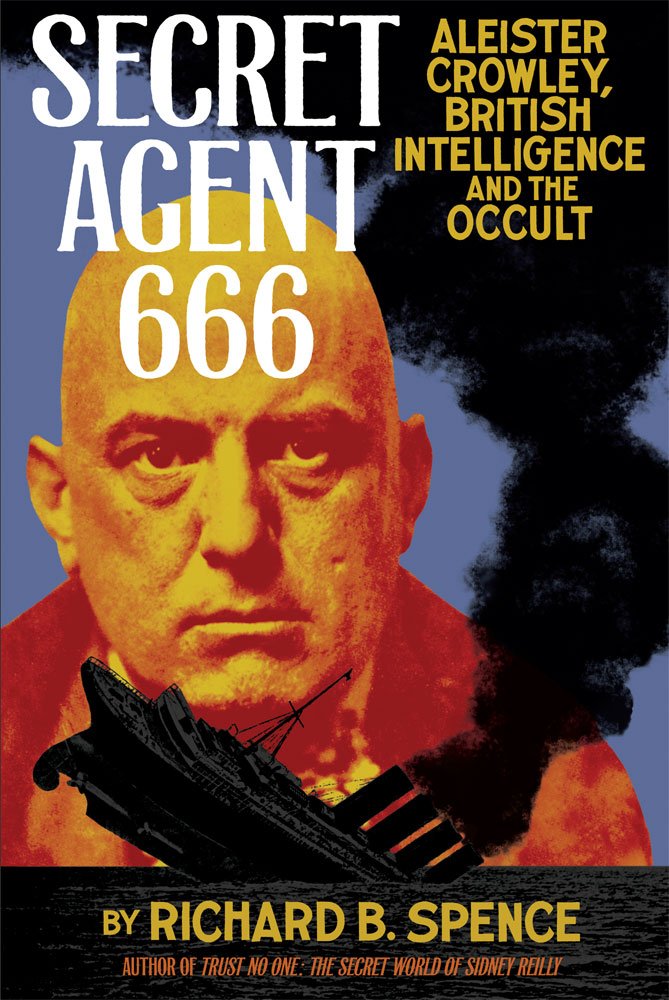
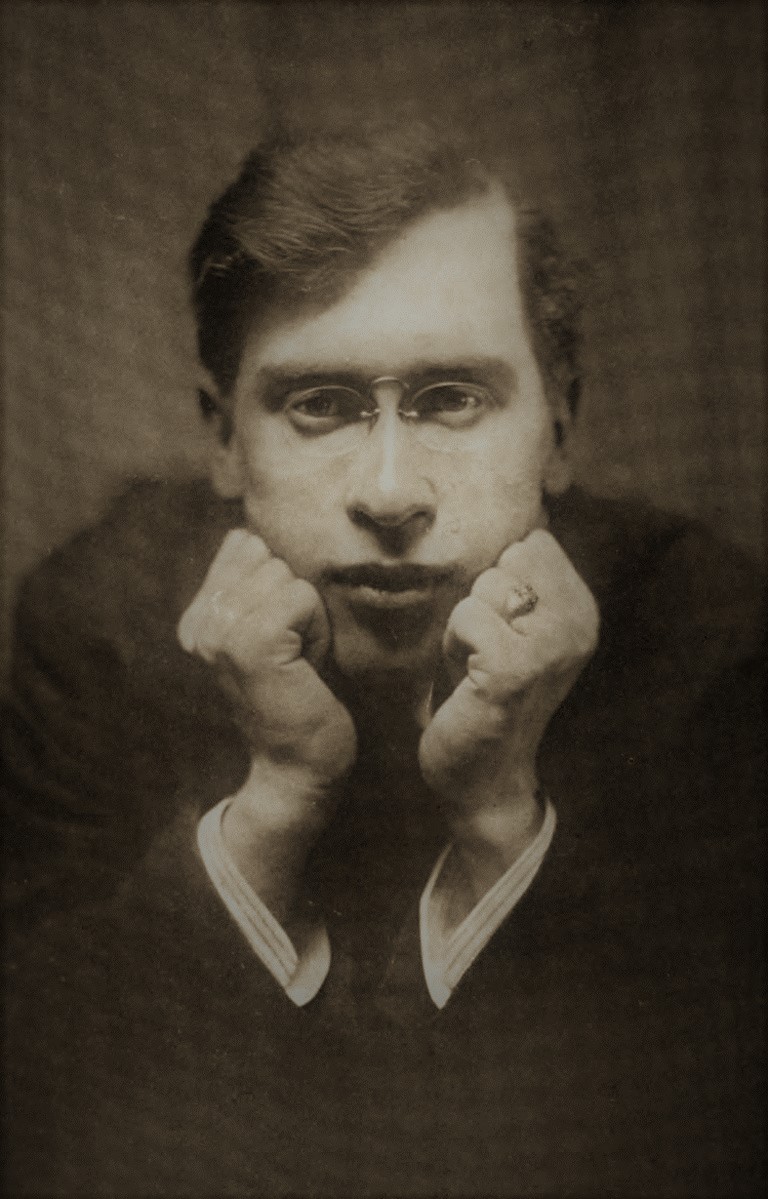
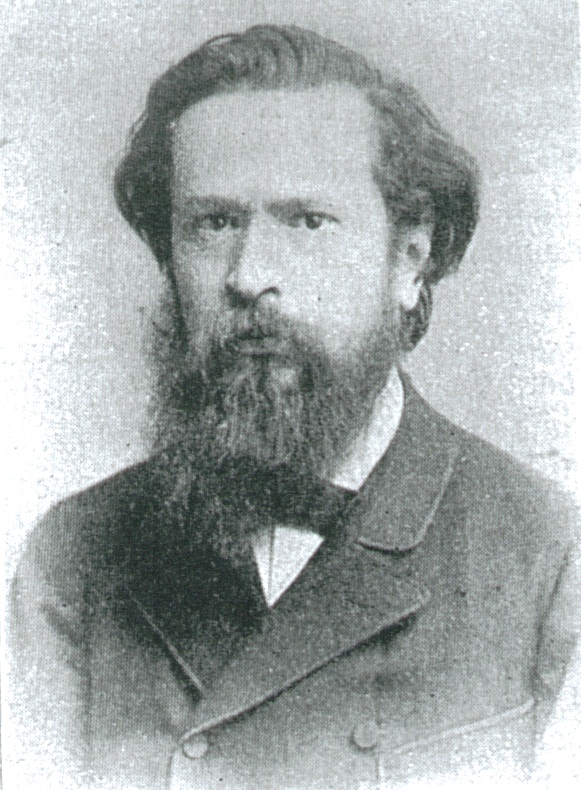
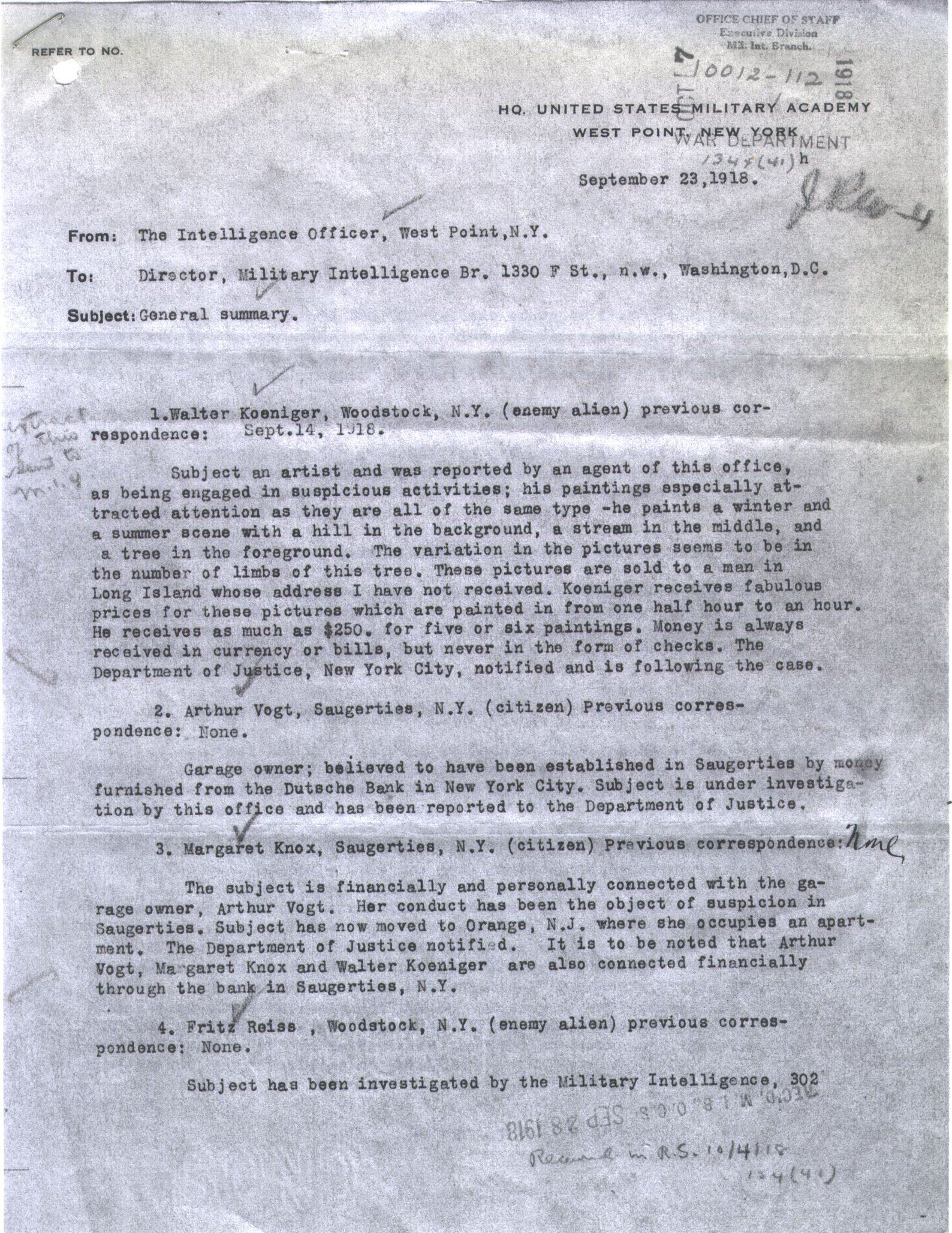
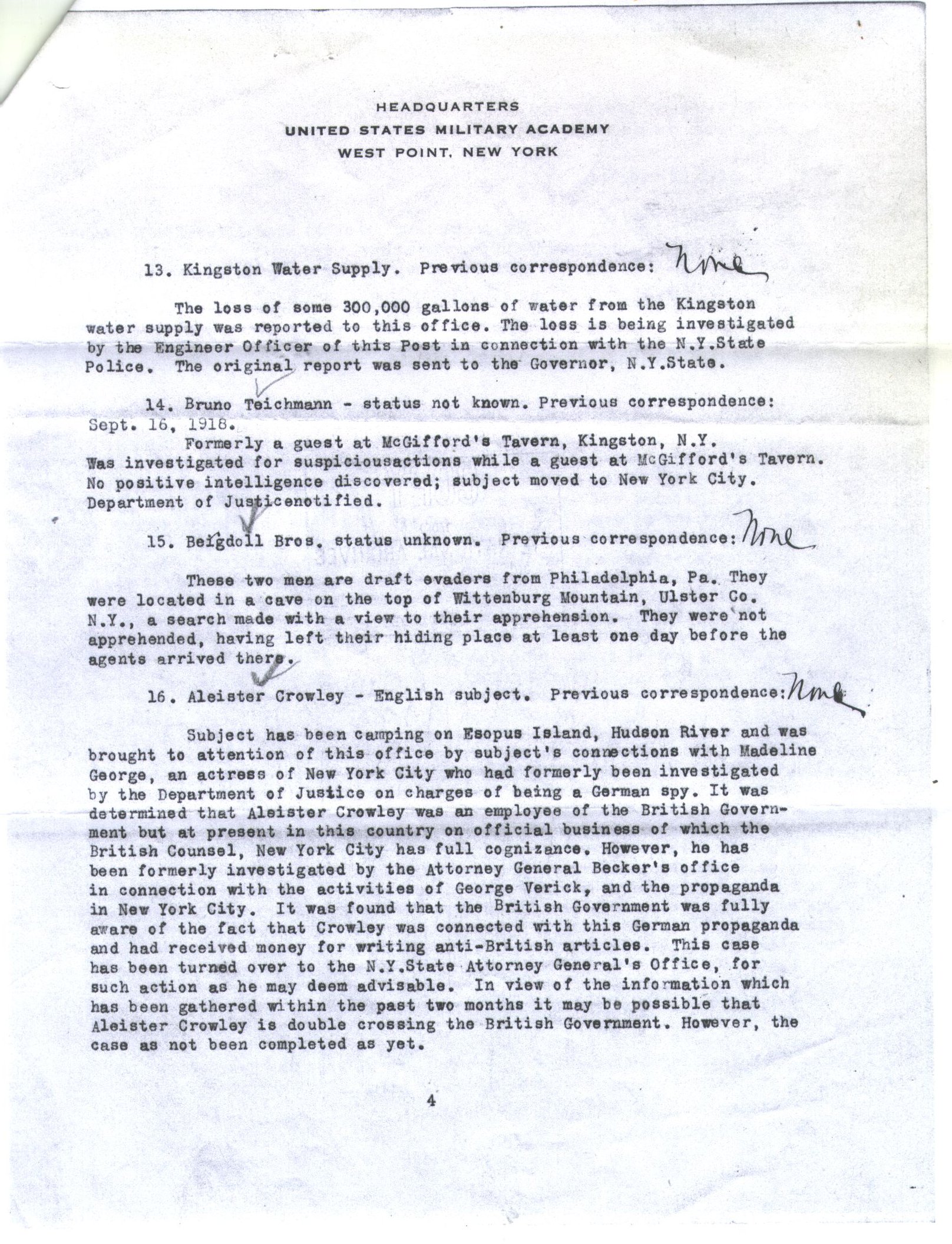

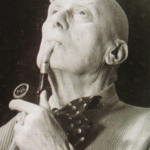

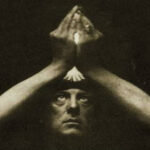

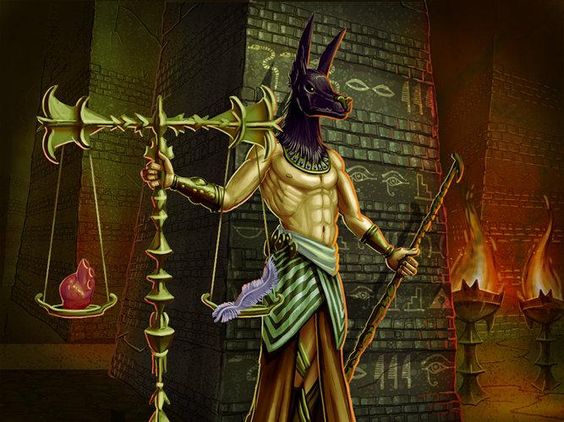
![How the East Saxons, during a pestilence, returned to idolatry, but were soon brought back from their error by the zeal of Bishop Jaruman [665 A.D.] | Book 3 | Chapter 30 How the East Saxons, during a pestilence, returned to idolatry, but were soon brought back from their error by the zeal of Bishop Jaruman [665 A.D.] | Book 3 | Chapter 30](https://www.gnosticwarrior.com/wp-content/plugins/contextual-related-posts/default.png)
‘To come back to Aleister Crowley, what you told me reminds me of the story that turned up in 1931 (I believe at least that was the exact date): while he was in Portugal, he suddenly disappeared. They found his clothes on the border of the sea, something that made them believe he had drowned. But it was only a simulated death, since they were no longer concerned about him & did not try to find out where he had gone. Actually, he went to Berlin to play the role of secret adviser to Hitler who was then at his beginning. It is probably this that had given rise to certain tales about the Golden Dawn, but in reality it was only about Crowley, because it does not seem that a certain English colonel named Etherton, who was then his “colleague”, had ever had the least relationship with that organization. A little later, Crowley founded the Saturn-Lodge in Germany; have you ever heard of it? There he called himself Master Therion, & his signature was to mega Therion (the Great Beast), something that in Greek gives exactly the numeric value 666.’ – Rene Guenon (philosopher) Oct 29 1949.